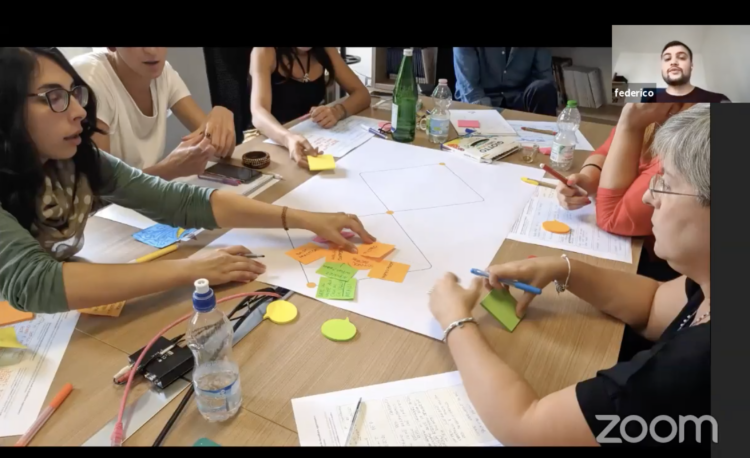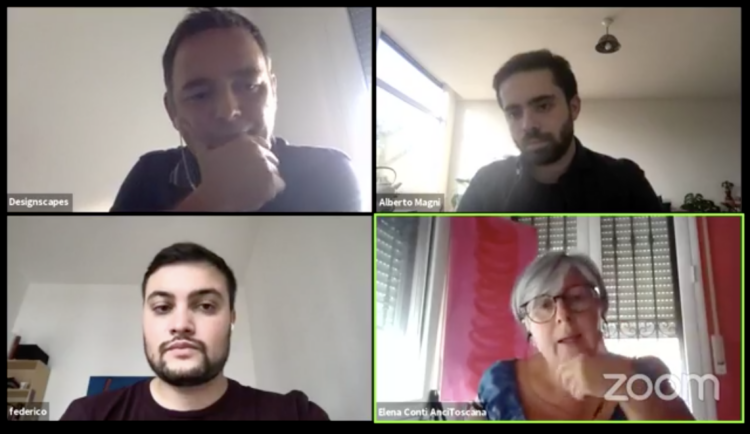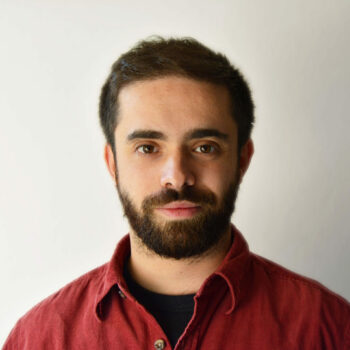Design as a policy competency
How can we build capacity for design in the public sector? And how can we understand its impact? A recent discussion with policymakers showed the activation of public managers as new design ambassadors in public sector organisations.
A train-the-trainer process for ongoing capacity building
The increasing complexity of contemporary problems in our societies forces public management to keep pace and harvest new capabilities to meet continuously evolving scenarios. Some requirements, for example, are the ability to critically reflect and engage with the different actors in society who will benefit from their guidance and to experiment with innovative approaches that can best answer their specific needs. Design thinking approaches are increasingly considered a strategic asset supporting public managers in developing such capabilities, encouraging a perspective of continuous experimentation and action through a human-centered and co-creative approach.
Supporting the development of such capabilities, however, is not straightforward. For this reason, at the end of 2019, the Participatory City Making Lab has been collaborating with the regional association of Tuscan municipalities ANCI Toscana within the European project DESIGNSCAPES, to set up a participatory capacity building process exploring how to make design thinking and skills valuable competencies in the ‘toolbox’ for policymakers.
The train-the-trainer process conducted by the Lab alumnus Federico Rita was articulated in four participatory sessions involving a team of seven public managers from ANCI Toscana. Following an iterative design process, Federico facilitated a thorough exploration of design capabilities where public managers could actively experiment and reflect on their challenges from practice. The activities and processes carried out with ANCI public managers were afterwards elaborated in a publication for the dmi: Academic Design Management Conference 2020 (Rita et al., 2020).
In order to understand the impact of such a capacity building trajectory, we set out to evaluate shorter and longer-term effects generated by the work of Federico.
Evaluating design impact within ANCI Toscana
About eight months after the end of the train-the-trainer program, the Lab organised a session with the trainer, Federico, and the trainees at ANCI Toscana, with the aim to discuss the results that the design approach had brought in their organisation. To open up the conversation on design as a policy competence with a larger international public, the session was organised during the DESIGNSCAPES Un-conference, a series of mini-events spread across a three month period aimed at discussing the results and promising future opportunities created with the DESIGNSCAPES project. The event, titled “Design as a policy competency: Training policy makers at ANCI Toscana” was hosted by Alberto Magni with the involvement of Federico Rita, as well as Elena Conti and Besnik Mehmeti, regional managers of ANCI Toscana who directly and indirectly took part in the train-the-trainer process.


After a brief introduction of Alberto, Federico presented to the audience the process of train-the-trainer conducted in ANCI. Throughout his presentation, Federico highlighted the participatory activities that helped the team of seven public managers participate in a reflection on their own practice, and explore the potentiality of embedding design thinking approaches in their way of working.
After the presentation, a conversation was initiated to learn from Elena Conti and Besnik Mehmeti their perspective on the impact of the training in ANCI. Starting from the changes that the two perceived within the organisation, the discussion then touched upon a series of projects that followed the period of training and that showed a new way of working within ANCI. The debate concluded with final reflections on the opportunities that this work had unveiled for the organisation, and on the possibilities for ANCI to continue diffusing and building these capabilities beyond the experience with Federico.
Click on the video below to watch the full session.
Public managers as design ambassadors
The conversation with Elena and Besnik highlighted the positive impact of the train-the-trainer work conducted by Federico and illustrated how this had stimulated the implementation of design approaches within ANCI Toscana’s projects. For example, Elena explained how Federico’s training helped ANCI to become more aware and knowledgeable of precious methodologies. Additionally, she also mentioned how the training helped the team develop several new competencies, among which one the most evident is probably their capacity in stakeholders’ engagement.
“The work of stakeholder engagement that was included in the projects has been done with special attention and with tools that we had definitely undervalued before, […] with a perspective more focused on values, not only of business interests”
During the session, both Elena and Besnik brought some concrete examples that evidenced how they were not only more aware of design potential, but also had successfully embedded design methods and approaches in their ongoing programs and campaigns. They introduced three projects conducted in the period that followed the training, Racine, TEAMS and ‘Design thinking and civic innovation’, which illustrate how the impact of design capacity has manifested in the work of ANCI.
Three projects initiated by ANCI embedding design methods and approaches
- Racine: a European project experimenting with innovative methods of interaction between places of culture and communities, activating participatory paths to collaboratively plan actions for the sustainable development of cultural heritage
- TEAMS: a European project conducted using methods of participation and co-planning, involving recipients and main stakeholders to propose actions facilitating the integration of citizens of migrants in Tuscany
- Design thinking and civic innovation: a training for start-ups and social innovators at Murate Idea Park in Florence, aimed at training local start-ups on tools and methodologies for citizens engagement, co-design with citizens, prototyping, and civic innovation
Furthermore, the value gained from implementing design practices interestingly motivated Elena and Besnik to look forward to concrete opportunities to further diffuse design capabilities among policymakers. In the concluding part of the seminar, they mentioned some of these opportunities.
“We would like to imagine also another level,” Elena mentioned, “it would be really interesting to be able to move this work of learning environment at the level of aldermen, mayors who for sure if they could own these tools at a level of service design, they could bring benefits in their territories.”
Interestingly, the further diffusion of these competencies could even start from some of ANCI’s existing assets. Among others, Elena and Besnik saw the potential of working through the institution of ANCI Scuola as a way to address the new generations of public managers, making them more aware of the value of design and expanding their current preparation integrating design as a core part of their professional training.
In conclusion, the session not only showed the positive impact of the train-the-trainer process with ANCI’s regional managers, but it also demonstrated how such an impact sparked the motivation of regional managers to somehow act as ambassadors of these innovative competencies in their domain.
“We have initiated a path within ANCI Toscana that will definitely continue in the future”, they stated, showing how it is very much in their plans to continue embedding and diffusing design as a key competence for policymakers in their region.
